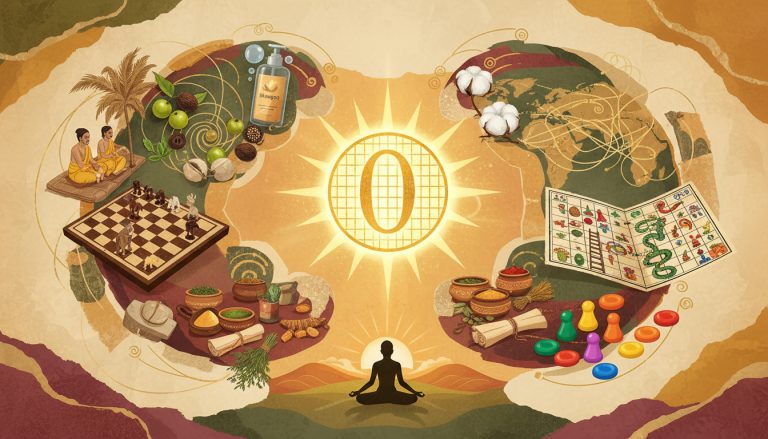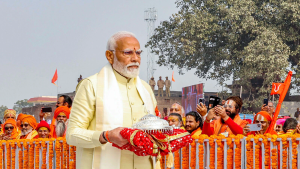Modi’s Impending Third Term

The Lok Sabha general elections in India have concluded, and the results have brought exciting news. Prime Minister Narendra Modi is poised to form the government for a third consecutive term. This victory comes as the National Democratic Alliance (NDA), led by the
Bharatiya Janata Party (BJP), has secured a majority in the Lok Sabha.
The Lok Sabha is the lower house of the Indian Parliament and consists of 543 members. The BJP, with its candidates contesting in the name of Modi, has emerged victorious in 240 seats. While falling short of the majority mark of 272, the BJP will rely on the support of its allies in the NDA for government formation.
This impending third term for Modi is a significant milestone for the BJP and reflects his enduring popularity among the Indian electorate. The Lok Sabha elections were seen as a referendum on Modi’s leadership and policies, and the results indicate a strong mandate for his government.
BJP’s Victory in the Lok Sabha Elections
The BJP’s victory in the Lok Sabha elections demonstrates its continued dominance in Indian politics. Despite not reaching the majority mark on its own, the BJP’s performance is commendable, considering it had won 303 and 282 seats in the 2019 and 2014 elections, respectively.
The party’s candidates contested in the name of Modi, highlighting his leadership and achievements. This strategy has resonated with a significant portion of the Indian electorate, leading to the BJP’s success in multiple constituencies across the country.
The BJP’s performance in the Lok Sabha elections further solidifies its position as a powerful political force in India. With the support of key allies in the NDA, including the Telugu Desam Party and JD(U),
the BJP-led alliance has crossed the halfway mark and is set to form the government.
In Uttar Pradesh, India’s biggest state and a key determinant of who rules nationally, the Hindu-nationalist party lost in the Faizabad parliamentary district, home to the controversial Ram Temple, built on the ruins of the 16th-century Babri Masjid. Modi had consecrated the temple in January.
Congress’ Performance and Opposition Bloc Strength
While the BJP celebrates its victory, the Congress party, part of the opposition INDIA bloc, has also made significant gains in the Lok Sabha elections. The Congress has won 99 seats, compared to the 52 seats it won in 2019.
The Congress’ improved performance can be attributed to its success in eating into the BJP’s share in states like Rajasthan and Haryana. Despite not securing a majority, the Congress’ increased seat tally strengthens the opposition’s position in the Lok Sabha.
The opposition INDIA bloc, led by the Congress, has showcased its resilience and determination. With the support of other parties like the Samajwadi Party and the Trinamool Congress, the opposition has put up a strong fight against the BJP-led NDA.
Key Role of Samajwadi Party in Uttar Pradesh
One of the key players in the Lok Sabha elections in Uttar Pradesh was the Samajwadi Party. With a strong performance, the Samajwadi Party has won 37 seats in the state, boosting the morale of the opposition INDIA bloc.
Uttar Pradesh is a crucial state in Indian politics, and the Samajwadi Party’s success reflects its ability to connect with the electorate and garner support. The party’s performance in Uttar Pradesh has contributed significantly to the opposition’s overall seat tally in the Lok Sabha.
The Samajwadi Party’s role in Uttar Pradesh highlights the diversity and complexity of Indian politics. As a regional party, it has managed to secure a significant number of seats, further shaping the dynamics of power in the Lok Sabha.
Implications and Future Prospects
The results of the Lok Sabha elections have significant implications for the future of Indian politics. While the BJP-led NDA has secured a majority and is set to form the government, the BJP’s reduced seat tally indicates a need for coalition-building and collaboration with allies.
The opposition INDIA bloc, despite not securing a majority, has showcased its strength and resilience. The increased seat tally of the Congress and the support of regional parties like the Samajwadi Party and the Trinamool Congress highlight the potential for a strong opposition in the Lok Sabha.
Looking ahead, the NDA government under Modi’s leadership will face various challenges and opportunities. The government’s ability to address key issues, implement policies, and navigate the complex dynamics of Indian politics will shape the future prospects of the country.
The Lok Sabha elections have once again highlighted the vibrancy and diversity of Indian democracy. As the new government takes charge, the expectations and aspirations of the Indian people will be closely watched, setting the stage for the next phase of India’s political journey.




